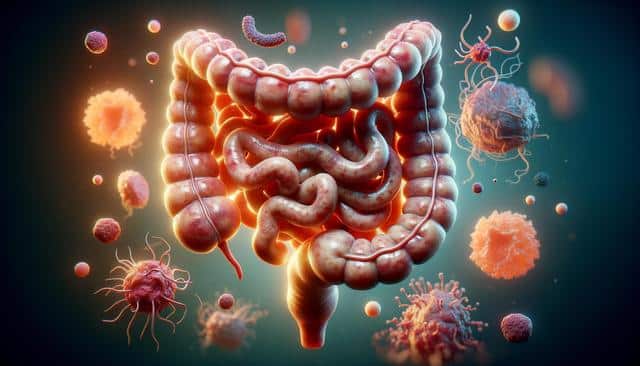Recognizing the Warning Signs of Colon Cancer
Colon cancer may grow with few early clues. Know the signs — like pain, change in stool, or blood — and why early checks save lives. Learn more so you can act early.

Why Recognizing Colon Cancer Signs Matters
Colon cancer, also known as colorectal cancer, is a condition that often progresses quietly in its early stages. Many individuals may not notice any symptoms until the disease has advanced, which is why awareness is crucial. Early detection significantly improves treatment outcomes and can even prevent cancer from developing further when found in the precancerous stage. With routine screenings and attention to warning signs, individuals have a stronger chance of managing or even avoiding serious complications.
Understanding the early signs allows people to seek medical help before the cancer spreads. Colon cancer typically begins with small, benign clumps of cells called polyps, which can become cancerous over time. While not all polyps turn into cancer, identifying and removing them early through screening tests can be life-saving. Listening to your body and taking action when something feels off can make a meaningful difference in outcomes.
Common Early Warning Signs
Several signs and symptoms may indicate the presence of colon cancer. While these can also point to other health issues, it’s important not to ignore them. Some of the most common early signs include:
- Persistent changes in bowel habits, including diarrhea or constipation
- Blood in the stool, which may appear bright red or very dark
- Abdominal discomfort such as cramps, gas, or pain
- A feeling that your bowel doesn’t empty completely
- Unexplained weight loss
These symptoms can vary depending on the size and location of the cancer in the colon. For example, bleeding may be more visible if the cancer is located close to the rectum, while changes in stool shape or frequency might be more pronounced with tumors higher in the colon. If any of these issues persist for more than a few days or worsen over time, it’s wise to consult a healthcare provider.
When to Seek Medical Attention
Knowing when to see a doctor is key. While occasional digestive issues are common, ongoing or worsening symptoms warrant professional evaluation. Medical providers can perform tests such as colonoscopies, fecal occult blood tests (FOBT), or imaging studies to determine the cause. Seeking medical attention is especially important if:
- You notice blood in your stool more than once
- There is a prolonged change in your bowel habits lasting over a few weeks
- You experience continuous fatigue without a clear reason
- You’re over the age of 45, or younger with a family history of colorectal cancer
These steps should not be delayed, as early intervention can prevent the cancer from spreading. Don’t assume that being younger means you’re not at risk—rates of colon cancer in younger adults have been rising in recent years.
Risk Factors and Prevention
Understanding the risk factors behind colon cancer can help individuals take proactive steps to protect their health. Some risk factors include:
- Age (most commonly diagnosed after age 50)
- Family history of colon or rectal cancer
- Personal history of polyps or inflammatory bowel disease
- Diet high in red or processed meats and low in fiber
- Physical inactivity and obesity
- Smoking and heavy alcohol use
Although some risk factors like age and family history can’t be changed, lifestyle choices play a significant role in prevention. A diet rich in vegetables, fruits, and whole grains, along with regular physical activity, can lower your risk. Avoiding tobacco and limiting alcohol are also important steps toward prevention. Discussing your risk with a healthcare provider may lead to earlier and more frequent screenings, which can help detect abnormalities before they become serious.
The Role of Regular Screening
Screening is one of the most effective tools for detecting colon cancer early. Guidelines recommend that people at average risk begin screenings at age 45. Depending on your risk level, your doctor may suggest earlier or more frequent testing. Several screening options are available, including:
- Colonoscopy, which allows for visual inspection and removal of polyps
- Fecal immunochemical test (FIT), a non-invasive test that detects blood in stool
- Stool DNA tests, which check for genetic changes associated with cancer
Regular screenings can catch precancerous polyps before they become cancerous. They also allow for early intervention if cancer is found. Discussing the right screening approach with your healthcare provider ensures you receive timely and appropriate care based on your individual risk factors and health history.